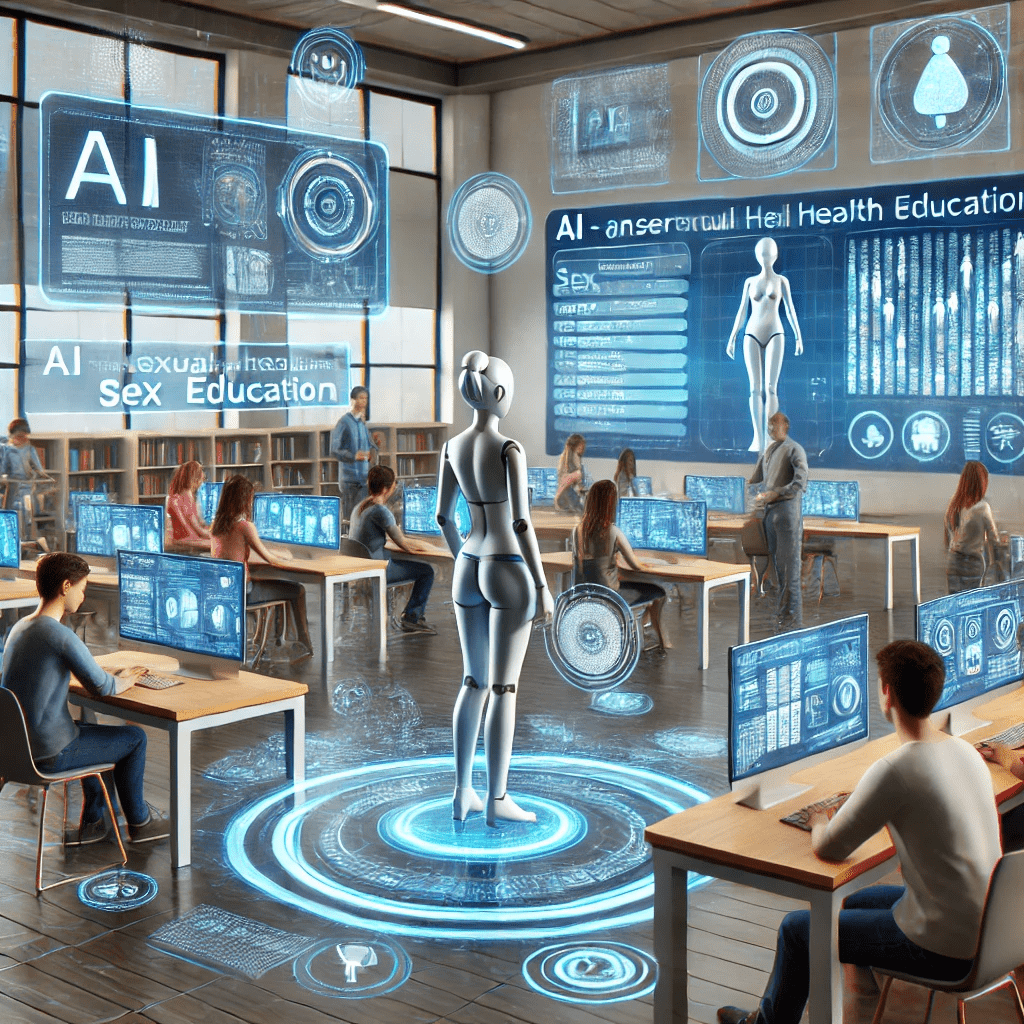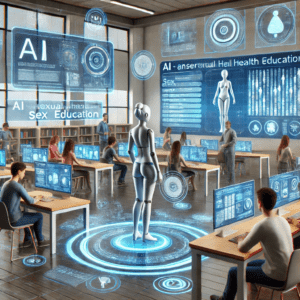In today’s digital age, Artificial Intelligence (AI) is transforming various industries, including sex education. With rapid technological advancements, traditional sexual health education is evolving to meet the needs of a tech-savvy generation. AI-driven platforms, chatbots, and personalized learning systems are reshaping how individuals access and understand sexual health awareness. This article explores the profound impact of AI in modern sex education, its benefits, challenges, and future potential.
AI-Powered Personalized Learning in Sex Education
One of the biggest advantages of AI in sex education is the ability to offer personalized learning experiences. Unlike traditional classroom settings, where the same curriculum is delivered to all students, AI-driven tools adapt content based on the learner’s age, preferences, and understanding level. Machine learning algorithms analyze user interactions and provide customized information, ensuring that individuals receive accurate and age-appropriate sexual health education.
AI Chatbots for Instant Sexual Health Advice
Many individuals feel uncomfortable discussing sexual health concerns with parents, teachers, or even doctors. AI chatbots offer a non-judgmental and private alternative for seeking information about sexual wellness, contraception, STDs, and safe sex practices. These chatbots use natural language processing (NLP) to understand queries and provide reliable, science-backed answers in real-time.
Popular AI-driven platforms like Planned Parenthood’s Roo and Ada Health allow users to ask anonymous questions and receive evidence-based responses. These tools help eliminate misinformation and provide instant guidance on sexual health awareness without embarrassment.
AI for Detecting and Preventing Sexual Misinformation
With the rise of social media and online forums, misinformation about sexual health spreads rapidly. AI is now being used to detect and correct false information related to contraception, pregnancy, sexually transmitted infections (STIs), and sexual orientation. Platforms like Google and Facebook use AI algorithms to filter out misleading content and promote trusted sexual health resources from verified organizations.
Virtual Reality (VR) and AI for Sex Education
AI-powered Virtual Reality (VR) is revolutionizing sex education by creating interactive learning environments. Students can engage in real-life scenarios, such as understanding consent, safe sex practices, and relationship dynamics, through immersive simulations. AI-driven VR sex education programs make learning engaging, memorable, and highly effective in improving sexual health awareness.
AI-Driven Sexual Health Apps and Wearable Technology
The emergence of AI-powered sexual health apps is providing users with tools for tracking reproductive health, menstrual cycles, and sexual wellness. Apps like Flo, Clue, and Natural Cycles use machine learning algorithms to predict ovulation, fertility windows, and potential health risks. These applications empower individuals to take control of their sexual health with data-driven insights.
Additionally, wearable technology integrated with AI is enhancing sexual wellness tracking. Devices that monitor hormonal changes, stress levels, and overall sexual well-being provide users with personalized recommendations for maintaining a healthy sexual lifestyle.
AI for Sex Education in Schools and Institutions
Educational institutions are integrating AI-powered learning modules into their sex education curricula. These interactive platforms use AI to provide engaging content, quizzes, and virtual discussions that cater to different learning styles. Adaptive AI systems adjust course materials based on students’ progress, ensuring comprehensive understanding of sexual health awareness.
For example, AI-driven platforms like Kahoot! and Smart Sparrow offer gamified sex education content that makes learning fun and engaging. Schools and universities worldwide are adopting these tools to enhance traditional sexual health education.
Ethical Considerations and Challenges of AI in Sex Education
While AI has immense potential in modern sex education, there are challenges and ethical concerns that must be addressed:
Data Privacy and Security – Users often share sensitive sexual health information with AI chatbots and apps. Ensuring data encryption and privacy protection is crucial to prevent misuse.
Bias in AI Algorithms – Some AI systems may exhibit gender, cultural, or sexual orientation bias, leading to incomplete or misleading sexual health education.
Lack of Human Interaction – AI tools, while helpful, cannot fully replace human educators who provide emotional support, empathy, and real-life guidance in sex education.
Regulatory Compliance – Governments and health organizations must establish clear guidelines for AI-driven sexual health education to ensure the information is medically accurate and ethically delivered.
The Future of AI in Sexual Health Education
As AI technology continues to evolve, its role in sex education is expected to grow significantly. Future advancements may include:
More sophisticated AI chatbots capable of providing highly personalized and empathetic responses.
AI-driven virtual health coaches offering real-time guidance on sexual wellness and relationships.
Blockchain technology for securing confidential sexual health data.
AI-enhanced sexual health research, leading to better disease prevention strategies and sexual well-being insights.
Conclusion
The integration of AI in modern sex education is revolutionizing how individuals access and understand sexual health awareness. From AI chatbots and virtual reality to personalized learning platforms and sexual health apps, technology is making sex education more accessible, engaging, and effective. However, addressing ethical concerns and ensuring AI-driven sex education remains inclusive, unbiased, and secure is essential for its continued success. As AI continues to advance, it holds the potential to empower individuals with accurate, personalized, and stigma-free sexual health education for generations to come.




